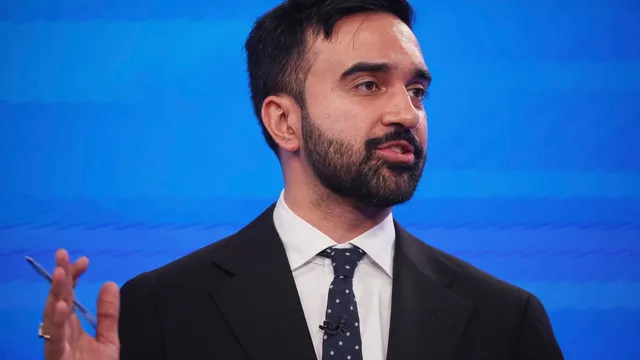
Zohran Mamdani refuses to denounce controversial call for violence against Jews
2025-06-19 11:05- Zohran Mamdani commented on the controversial phrase during a podcast while running for NYC mayor.
- His refusal to denounce the phrase has sparked backlash from Jewish organizations amid rising antisemitism.
- Critics, including political opponents, demand strong condemnation against incitement to violence.
Express your sentiment!
Insights
In the United States, during the New York City mayoral campaign, candidate Zohran Mamdani faced backlash after he declined to condemn the phrase 'Globalize the intifada' while discussing it on a podcast. This statement came at a time of heightened tensions related to the ongoing conflict in the Middle East and rising antisemitism. Mamdani, a member of the state Assembly and a democratic socialist, is campaigning to become New York City's first Muslim mayor. He is currently polling second behind former Governor Andrew Cuomo in the Democratic primary. The phrase has been historically linked with violent uprisings and has garnered significant criticism, particularly from Jewish advocacy groups who assert that it incites violence against Jews. Mamdani acknowledged concerns regarding antisemitism but defended his position by stating that terms can be interpreted differently depending on individuals' perspectives and experiences. He suggested that he finds the idea of banning certain language to be counterproductive and more characteristic of authoritarian governance. His comments have triggered outrage among various factions, particularly in light of previous violent attacks that have occurred against Jewish targets, which some have attributed to the rhetoric surrounding this phrase. Many political figures, including Cuomo, have insisted that such language should unequivocally be condemned, emphasizing the necessity for leaders to take a firm stance against antisemitism. Mamdani’s previous actions and affiliations regarding the Israeli-Palestinian conflict, including his support for the BDS movement and his establishment of a chapter of Students for Justice in Palestine during college, have contributed to his polarizing image in this campaign. It has created a complex narrative in the political arena, where he is perceived by some as too lenient on Israel, while others view him as confrontational towards Jewish communities. The growing concern about language used in political discourse raises significant questions regarding freedom of speech, the responsibilities of public figures, and the political ramifications of words, particularly as the dynamics surrounding the Israeli-Palestinian conflict continue to evolve.